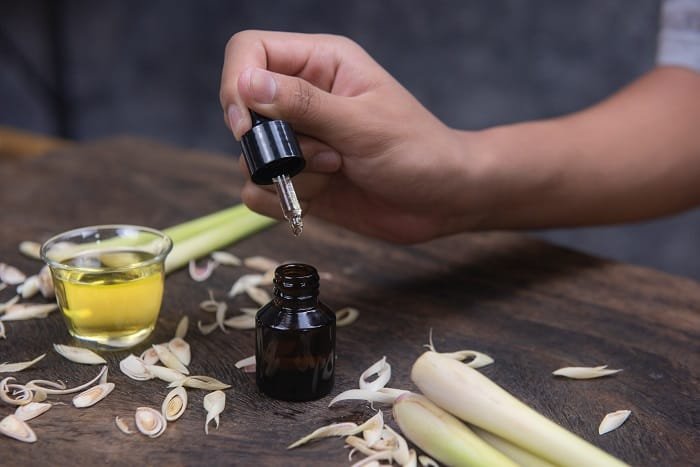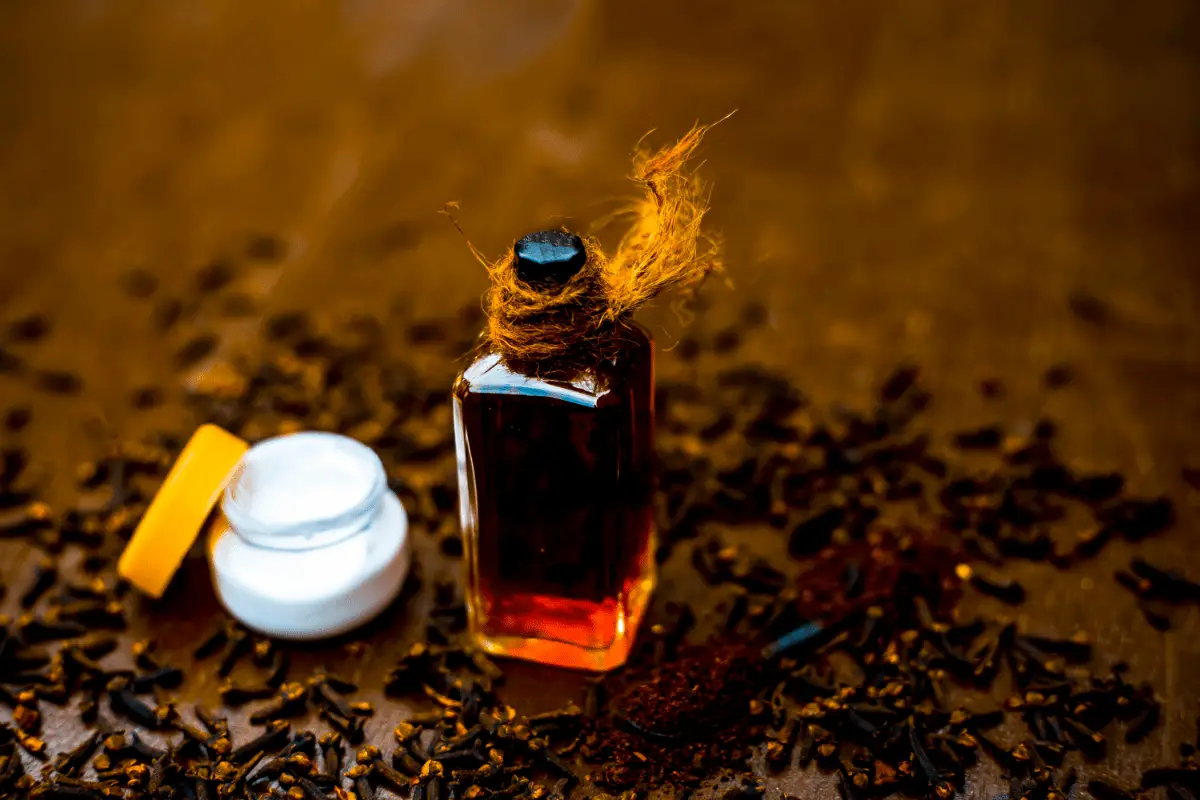Last Updated on October 10, 2024
If acne is something you’re battling with and you happen to be searching for alternatives to prescription and drugstore acne treatments, then you’re exactly where you need to be right now. This article will show you what essential oils are good for acne. What are essential oils? Well, they’re plant chemicals that have been extracted using steam from certain plants.
Plant extracts have played a big role in traditional folk medicine for a very long time. They are also very prevalent in modern medical studies and research. One of the key benefits they offer includes killing bacteria, which is what’s usually the main cause of acne.
Table of Contents
What Causes Acne
Acne starts when your pores are clogged by skin oil (sebum) and skin flakes. Plugged pores become breeding grounds for bacteria. This bacteria clog-up is what helps give rise to pimples. The application of topical-bacteria killing agents directly onto your skin is the most common way of treating acne.
What Essential Oils Are Best in Treating Acne Complications
With that said, many essential oils can kill bacteria. One study showed that the most effective oils against such acne-causing bacteria include:
- tea-tree oil
- lemongrass oil
- rosemary
- rose
- cinnamon
- thyme
How to Use These Essential Oils to Treat Acne
1. Tea-Tree Oil
No list of essential oils that can help fight acne can be complete without the inclusion of tea-tree oil. This is a plant component that is both widely adored and recognized for its natural antimicrobial and antibacterial properties. It basically acts similarly to how a spot treatment would, by killing bacteria and germs. It is also anti-inflammatory, which means that it has the ability to reduce pimple size while still drying out the pus. All you need to do is apply a drop or two on the affected areas; then, once dry, follow it up with a moisturizer.
2. Lemongrass Oil
Lemongrass essential oil is a fantastic homemade astringent that stimulates both your olfactory system and skin. This fragrant grass plant has a citrusy scent, and it’s well-known for its antimicrobial and antiseptic features that help obliterate pimples and zits. It can also help relieve pain because of its analgesic effect. It’s ideal for those with oily skin. Apply over oily complexions to help prevent and reduce the appearance of zits and pimples.

3. Rosemary
Certain lab tests have found that rosemary has the ability to damage the bacteria that causes pimples and acne. Food scientists have found the positive effects of Rosemary, which prevent the fungal growth in food, which is all part of rosemary’s artillery against acne.
4. Cinnamon
If you thought cinnamon was only good for sprinkling on lattes and baking, then you’ve been in the dark, too long; it can be used for way more than that. This product that’s derived from the bark of a tree has proved very effective at battling the bacteria that causes acne. Additionally, it also has the power to reduce cholesterol levels and reduce menstrual pain. Cinnamon based essential oils are known to eliminate E.coli and staphylococcal bacteria. These are among the main components that cause acne.
5. Lavender Essential Oils
Aromatherapists, all across the globe, really trust lavender-based essential oils when it comes to stopping the bleeding process. Furthermore, the calming effects it has, also make it the perfect treatment for ingrown hairs, pimples, and cysts. Its soothing nature, which has the ability to help relieve irritation and itchiness, is what makes it an extremely versatile component. It can also help repair skin which, in turn, means it can heal wounds. This is what newbies are recommended to use and should be applied to open pimples directly. However, in the beginning, you should strongly consider using it blended with a carrier oil.
6. Clove Essential Oil
This essential oil has a lot of antiseptic properties that are able to obliterate the bacteria that live inside blemishes. In fact, clove-based essential oils are so powerful that they often have caution labels tagged in them or their packages. Since cloves happen to be extremely stimulating, this means that it has the ability to bring cysts or boils to their heads. This is not something you always want. With a musky, earthy-scent, anti-inflammatory, anti-fungal, and antibacterial properties, this oil is ideal for treating cystic outbreaks. Instead of just drying the affected areas out, it also eliminates the nasty bacterium that causes the inflammation. Barring genetics and diet, clove essential oil has also shown that it can really help oily skin which is prone to boils and cysts.
7. Thyme
Thyme is a delicate herb essence that’s a big hit in the kitchen, especially when it comes to enhancing cooked potatoes or pasta sauces. Many lab tests have shown the effectiveness of this herb when it comes to fighting acne-causing bacteria. In addition, it can also help kill those germs that cause an eye infection; but, that doesn’t mean you directly apply it to your eyes.
8. Frankincense Oil
This essential oil has sedative properties and is among the gentlest option on this list. This is actually what makes it so perfect for a lot of skin types. It naturally heals scars and wounds which make it good for repairing popped zits. It will also provide relief for irritated, dry skin. Using it via clay masks is a great way of reducing inflammation and balancing oil production. It’s recommended to use it with carrier oils.
Conclusion
Whether it’s because of your personal choice, sensitive skin, or allergies, there are so many reasons why people choose to treat their acne with essential oils rather than use traditional treatments like masks, medicated ointments, and drying lotions. Essential oils can do almost anything their prescribed medication counterparts can but in a more natural way. You really don’t have to continue relying on harsh chemicals to fight your acne. All you really need to know is what essential oil works best for you, and once you’ve got that, then you’re good to go. Hopefully, this article will help you achieve a smooth, glass-skin face you’ve been dreaming of.
Learn more about How To Make The Black Face Mask

Lacey is an environmental enthusiast and passionate advocate for living green and sustainable. She believes that everyone can make a difference, no matter how small. Lacey is dedicated to reducing her own carbon footprint and educating others on the importance of living greener. She is an advocate for green energy and sustainable practices. She is an active member of her local community, volunteering with local conservation efforts, and taking part in sustainability initiatives. Lacey is a firm believer that the only way to ensure a sustainable future is to work together and make small, but important changes.

